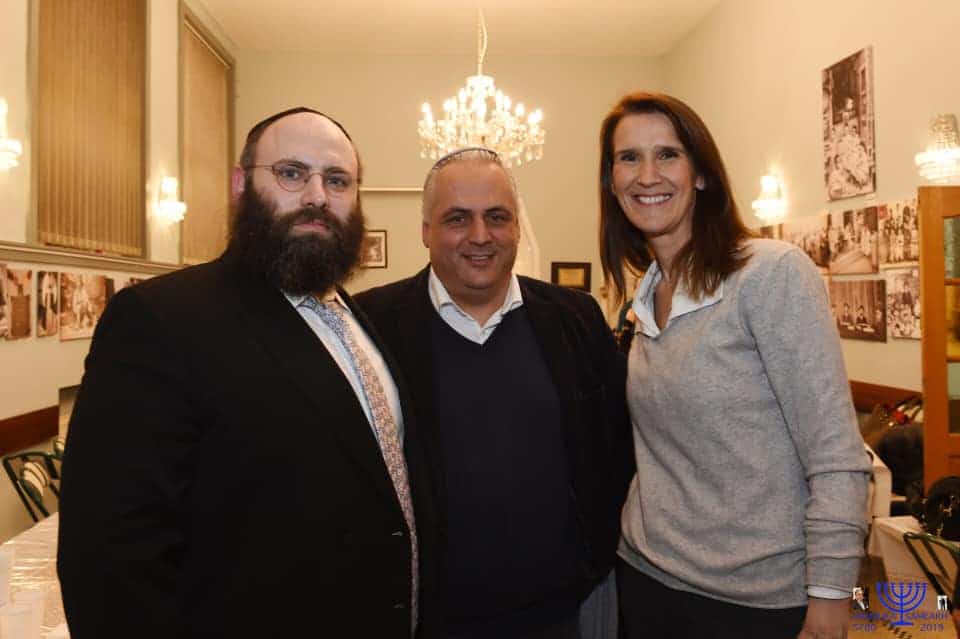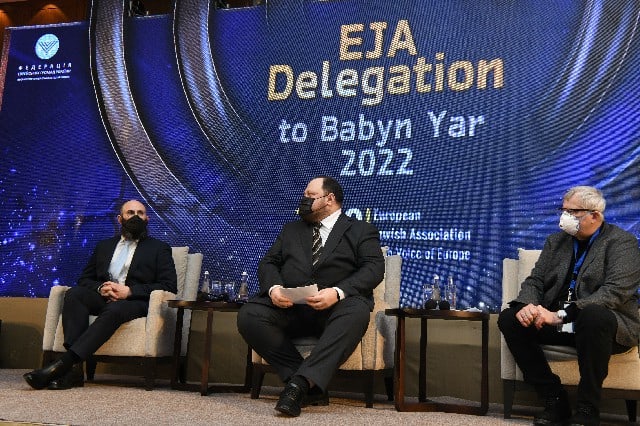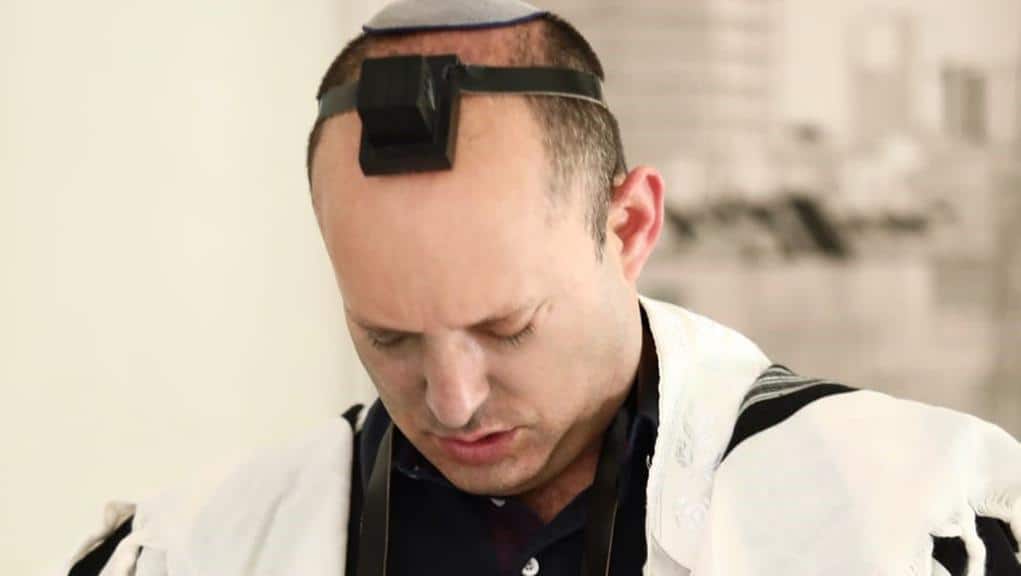Every Day during the Corona crisis our Advisory Board Member Chief Rabbi Binyomin Jacobs (NL) writes a diary, on request of the Jewish Cultural Quarter in Amsterdam, which is published on the website of the NIW, the only Jewish Dutch Magazine. Rabbi Jacobs is the head of Inter Governmental Relationships at the Rabbinical Centre of Europe. We will be regularly publishing a selection of his informative, sometimes light hearted, but always wise pieces.
For our Dutch readers you can follow the diary every day at NIW home page: https://niw.nl
Diary October 26, 2020
This is, and sometimes I forget the fact, a diary in corona time. I felt that ‘corona time’ particularly today. It is not only the nagging feeling of uncertainty, but also the media that never stop talking about it and, naturally enough, the discussion within the Jewish community itself.
Incidentally, that discussion taking place both within and outside of the Jewish community will be completely identical.
I think we have roughly three schools of thought on Covid 19. The ultra-orthodoxy, the moderates and the apostates.
Ultra-Orthodoxy almost compulsively adheres to the rules, does not take any risks and tries to convince others to live in isolation.
The apostates think everything is nonsense. Nobody knows anyway and you cannot prevent it, and it is all chronically exaggerated.
I count myself among the second school of thought, the moderates, who try to stay calm, not to exaggerate, but who refuse to downplay reality. But there was a crack this morning in that staying calm. And then what do I do? I WhatsApp’ed my professor. Who is my professor? The husband of a former student with whom I have regular contact about all kinds of things, but especially about legal matters. Just an example of such a contact: that former student of mine, now a middle-aged lawyer, has a bit of the same problem as I do.
She can’t say no! And so, when I have something on my mind again, I get her on speed dial.
Years ago, I met an old man who was quite young at heart. He looked like my grandfather in appearance. He was one of the few who survived Auschwitz as a child. He was friendly, easy-going, reliable. The kind of person I wouldn’t think twice about asking to bring € 100,000 in cash from A to B.
However, he had a tricky problem: he had a habit of stealing! Not just because, but only when he needed something. This is how he managed to survive Auschwitz.
After the war, as I have written before, the welcome-home-in-the Netherlands was not always warm (understatement!). His parents had been murdered, he had no family and he had no possessions, no roof over his head and no form of income. And so, if he needed anything, clothing or food, he continued his learned survival technique and had no qualms about stealing.
And now he got caught. He had, if I remember correctly, Fl. 4000 received from the WUV, the Persecution Victims Benefit Act (a fund paid in compensation by Germany for Dutch Jewish citizens who suffered under the Nazis), for the purchase of an electrically adapted disabled car. He had managed to get that car for Fl. 2000 (cash, no receipts) and the remaining Fl. 2000 he had put in his pocket. Busted! And so, a lawsuit. I engaged my former student and there we stood in the courtroom in front of three honourable people in togas.
At the request of the defendant’s lawyer, my former student, I was asked to say a few words at the very end of the trial. Your Honour, I can still hear myself say, of course theft is punishable. You have a duty to enforce the law. But do you realize that the same legal system that correctly indicates that the defendant did something against the law, do you realize that the same system sent him to Auschwitz?
And to the representative of the fund, who was present as plaintiff, I said that I refuse to understand how, as the body responsible for making amends, he would take it into his head (I had phrased it a little more sharply) to give this survivor the indignity of standing in court. The judges got it: immediate acquittal.
That former student is now a mother and married to a professor. And that’s my professor. We actually only know each other via WhatsApp and telephone, have never had any real contact, but he is now my point of contact for all information about corona. What is nonsensical conspiracy theory and what is correct. Where the boundary between ultra-Orthodox, moderate and apostate actually lies.
And so, this morning, when I was just at a low ebb and contemplating switching from moderate to ultra-orthodox, it just took a WhatsApp to my medical spiritual counsellor the professor, and see, I am one of the moderates again.
I do feel the link to the war strongly. I am beginning to realize that our Lockdown is in no way comparable to the two years and eight months that my father was locked up, without a laptop, without a phone, without any contact with the outside world that was life-threatening. I feel guilty that I never felt that. I now understand very well that my father, like almost all fathers of my generation, never mentioned their Lockdown.
They couldn’t and wouldn’t talk about it. After the death of my dear and sensible father, I wanted to talk to his niece, Aunt Wies, who was also at the same hiding address, about their period in hiding. Please, she said, don’t do this to me. I can’t and don’t want to think about it!
But because my professor, who is always available for me and regularly calls me back from the operating theatre, had put me back on the right mental track, I was able to quietly answer a number of phone calls from people who sought support from me. And there were more than usual today, unfortunately.
















